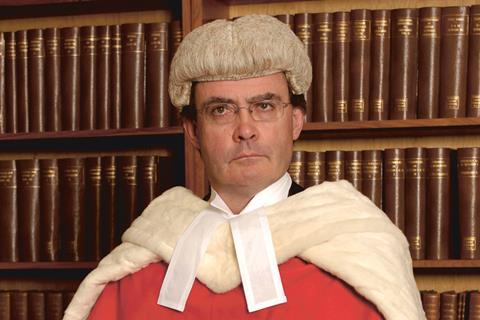The Court of Appeal has overturned a judge’s attempt to impose a cap at a quarter of the reasonable costs in a competition case.
Ahead of the substantive trial next month in Durham County Council v The Durham Company Limited, Competition Appeal Tribunal president Sir Marcus Smith had forced a cap of £60,000 on the council and £50,000 on its opponent.
This was despite the president’s recognition that the reasonable and proportionate costs of the council’s application might be around £250,000.
Appeal judges ruled that the tribunal had no jurisdiction to cap the parties’ costs and that a successful party was entitled to recover their reasonable and proportionate costs.
The court heard that the respondent, a waste disposal company, had applied for statutory judicial review under section 70 of the 2022 Subsidy Control Act. Trading as Max Recycle, the company argues that the council’s charging practices for its own collection of trade waste are an unlawful cross-subsidy. This is the first application for JR under the new legislation, which was introduced to oversee subsidy in the UK and to replace the EU state aid regime.
Imposing the cost caps, Smith said: ‘The one thing one doesn’t want to have is for the financial advantages of subsidies to be subsumed in challenges to their making or not making in terms of legal cost.’
Following an expedited hearing earlier this month, the Court of Appeal said the tribunal had been wrong in principle.
The three appeal judges, Sir Julian Flaux, Lord Justice Nugee and Lord Justice Newey, agreed that, without authorisation by legislation or tribunal rules, the judge had no jurisdiction to cap the parties’ costs.

Flaux said: ‘The order the judge made here did not consider whether disproportionate costs would otherwise be incurred, but simply imposed an artificial and arbitrary cap on the council’s costs of £60,000, irrespective of the fact that there was no evidence that the council would otherwise incur disproportionate costs.’
Flaux said the judge’s aim to prevent excessive costs had been ‘entirely laudable’ but the option of capping costs was not available.
‘[The cap] was a derogation from the normal position that a successful party is entitled to recover its reasonable and proportionate costs,’ he added.
The court said that any risk of disproportionate costs being incurred could be managed either through costs budgeting or detailed assessment.
Jamie Carpenter KC and Richard Howell, instructed by DWP Law, appeared or the appellant council; Michael Bowsher KC and Ligia Osepciu, instructed by Tilly Bailey & Irvine, appeared for the respondent
Aidan Robertson KC and Richard Howell are acting for the council in the underlying application for review in the Tribunal.
This article is now closed for comment.



























1 Reader's comment